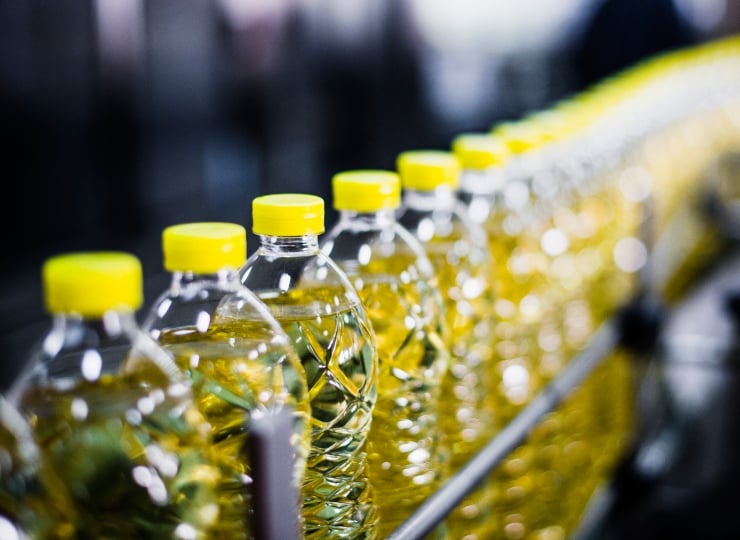Non-intentionally added substances analytical support for food contact materials and articles including NIAS screening and identification services helping you to mitigate potential health risks
Non-intentionally added substances (NIAS) in food contact materials represent a potential safety issue for the food packaging industry. NIAS testing and analysis studies are required to screen, identify and quantify substances to assess the safety and compliance of materials or articles.
NIAS include impurities, reaction products or degradation products that originate from the manufacturing or extraction process of substances used in the manufacture of plastic materials or food contact articles. The Commission Regulation (EU) No. 10/2011 on plastic materials and articles intended to come into contact with food, states that potential health risks in the final food packaging products or articles should be assessed by the manufacturer in accordance with internationally recognised principles of risk assessment.
Non-listed substances (NLS) are another category of chemical substances which must be considered within food contact risk assessment studies. NLS are generally classed as substances that have not been listed as they have been deemed to be not harmful due to arbitrary reasons or commercial reasons, however, they are still subject to assessment.
Central to NIAS risk assessment, and the first step towards demonstrating NIAS compliance, is to determine which substances are present in your food contact material. While substances derived from side reactions and degradation products can broadly be predicted and used as a starting point for developing an NIAS analysis strategy, contamination can occur at any point in the lifecycle of the food contact material and identification can present a significant challenge. NIAS screening studies and migration testing help to reveal and identify potentially harmful substances.
Considering NIAS applies to all materials intended to come into contact with food, and all food contact materials have the potential to contain non-intentionally added substances, it is critical to address any risk to consumer health. Bringing quality and safety to life, our NIAS assurance services enable you to identify and mitigate the intrinsic risk associated with non-intentionally added substances.
NIAS Testing and Risk Assessment Solutions
Our highly experienced scientists and food contact materials testing team deliver comprehensive support following these steps:
- Information Gathering: Our regulatory experts gather information regarding the chemical composition of the food contact material to achieve a complete (as far as possible) understanding of the material composition including all relevant information from the manufacturing process.
- Analytical NIAS Screenings: Our NIAS analytical teams conduct investigations using a series of analytical approaches to attempt to determine all potential migrants. NIAS screening programs are executed with a wide range of sample preparation techniques (e.g. extraction with solvents under controlled conditions) and analytical techniques (thermal desorption gas chromatography time-of flight mass spectrometry (GC/Q-TOF) gas chromatography mass spectrometry (GC-MS), liquid chromatography – mass spectroscopy (LC-MS), inductively coupled plasma mass spectrometry (ICP-MS)) to identify and semi-quantify the presence of NIAS.
- Identification of Hazardous Substances: Our toxicology professionals identify the presence of any hazardous substances based on literature surveys and/or based on internationally recognised scientific principles on risk assessment (e.g. the TTC approach / Cramer classification).
- Exposure Assessment: Our NIAS teams perform migration studies and/or exposure assessments in order to define real exposure and estimated daily intake.
- Final Risk Assessment: Our regulatory and toxicology consultants calculate the risk and hazard to the consumer and make any recommendations if required. We supply full documented report on any potential health risk associated with the final material or article.
Our analytical scientists and regulatory teams possess nearly 30 years of experience in food contact compliance and they apply their Total Quality Assurance expertise through cost-effective analytical data packages, regulatory guidance and documentation to help you achieve compliance for your food contact materials. Our global reach allows us to liaise with regulatory agencies around the world and our strategic approach to gathering information, testing requirements and documentation can help you to achieve swift compliance, support notification or provide the analytical data and insight you need for your specific food contact materials or articles.


